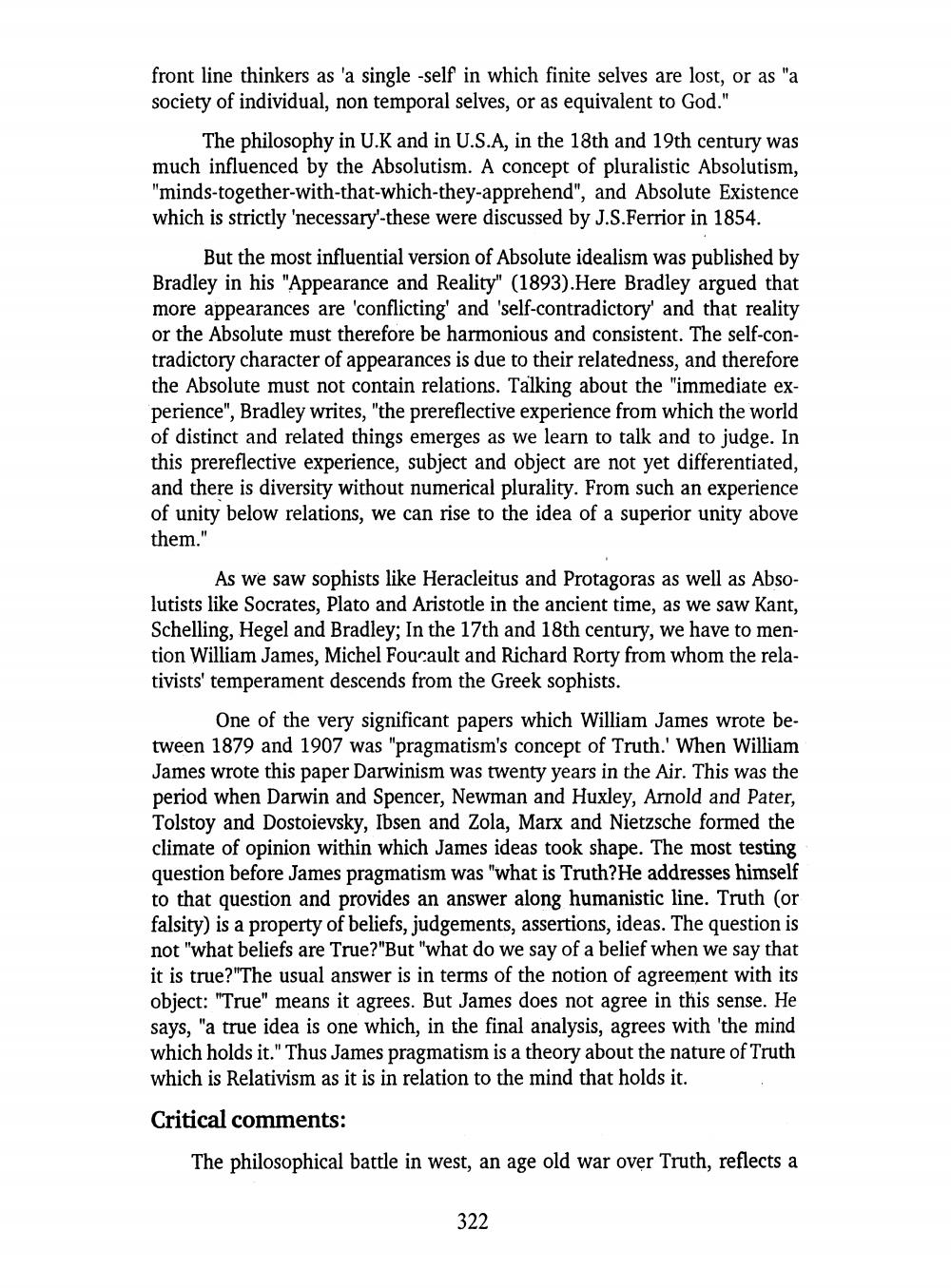________________
front line thinkers as 'a single -self in which finite selves are lost, or as "a society of individual, non temporal selves, or as equivalent to God."
The philosophy in U.K and in U.S.A, in the 18th and 19th century was much influenced by the Absolutism. A concept of pluralistic Absolutism, "minds-together-with-that-which-they-apprehend", and Absolute Existence which is strictly 'necessary'-these were discussed by J.S.Ferrior in 1854.
But the most influential version of Absolute idealism was published by Bradley in his "Appearance and Reality" (1893).Here Bradley argued that more appearances are 'conflicting' and 'self-contradictory and that reality or the Absolute must therefore be harmonious and consistent. The self-contradictory character of appearances is due to their relatedness, and therefore the Absolute must not contain relations. Talking about the "immediate experience", Bradley writes, "the prereflective experience from which the world of distinct and related things emerges as we learn to talk and to judge. In this prereflective experience, subject and object are not yet differentiated, and there is diversity without numerical plurality. From such an experience of unity below relations, we can rise to the idea of a superior unity above them."
As we saw sophists like Heracleitus and Protagoras as well as Absolutists like Socrates, Plato and Aristotle in the ancient time, as we saw Kant, Schelling, Hegel and Bradley; In the 17th and 18th century, we have to mention William James, Michel Foucault and Richard Rorty from whom the relativists' temperament descends from the Greek sophists.
One of the very significant papers which William James wrote between 1879 and 1907 was "pragmatism's concept of Truth.' When William James wrote this paper Darwinism was twenty years in the Air. This was the period when Darwin and Spencer, Newman and Huxley, Arnold and Pater, Tolstoy and Dostoievsky, Ibsen and Zola, Marx and Nietzsche formed the climate of opinion within which James ideas took shape. The most testing question before James pragmatism was "what is Truth? He addresses himself to that question and provides an answer along humanistic line. Truth (or falsity) is a property of beliefs, judgements, assertions, ideas. The question is not "what beliefs are True?"But "what do we say of a belief when we say that it is true?"The usual answer is in terms of the notion of agreement with its object: "True" means it agrees. But James does not agree in this sense. He says, "a true idea is one which, in the final analysis, agrees with 'the mind which holds it." Thus James pragmatism is a theory about the nature of Truth which is Relativism as it is in relation to the mind that holds it.
Critical comments:
The philosophical battle in west, an age old war over Truth, reflects a
322




